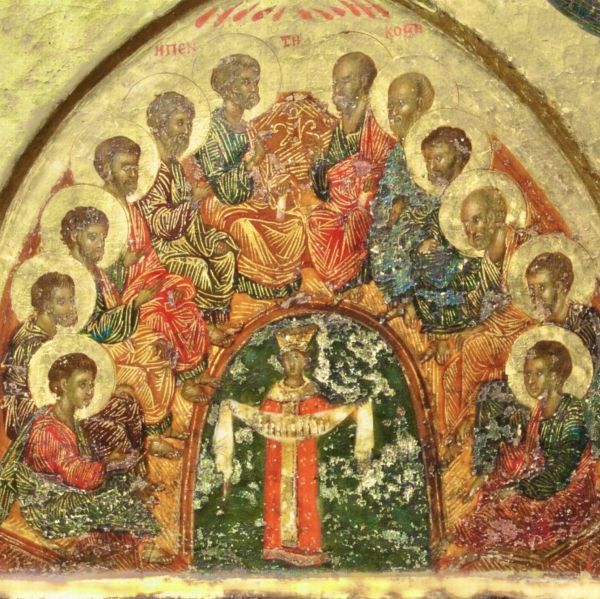The Gospel of the Solemnity of Pentecost highlights, through Jesus, the sending of the Holy Spirit: «whom the Father will send in my name» (Jn 14:26), says the Lord.
Francis of Assisi lived and served under the sign of the Holy Spirit, considered the Minister General of the Order.
He was, in fact, frequently visited by Him, who guided him interiorly.
In Celano's Second Life, we are given a very interesting passage:
"It is not right to omit the memory of the spiritual building, much more noble than the material one, which the Father, after the repair of the church*, raised in that place under the guidance of the Holy Spirit, to increase the heavenly city.
And it cannot be believed that Christ spoke to him from the wood of the Cross in such a wonderful way as to instil fear and sorrow in those who hear about it, only to repair a falling building destined to perish.
But, as the Holy Spirit had once foretold, an Order of holy virgins was to arise there, destined to be transferred in due course, like a chosen mass of living stones, to restore the heavenly house.
Indeed, after the virgins of Christ began to gather in that place, coming from various parts of the world, and professed their commitment to the highest perfection, observing the utmost poverty in the splendour of every virtue, the Father gradually withdrew his physical presence from them. However, he intensified his care for them, loving them even more in the Holy Spirit.
In fact, when the Father, from the numerous proofs of the highest perfection they had given, knew them to be ready to endure every earthly harm and every sacrifice for Christ [...] he promised firmly to them and to the others [...] that he would give them his help and counsel and that of his brothers in perpetuity.
As long as he lived, he always kept these promises scrupulously, and as he was about to die, he commanded with concern that they should always be kept, because, he said, "one and the same spirit brought the friars and those poor women out of this evil world" (FF 793).
A continuous Pentecost rained down on the Order, especially during the lifetime of Francis and Clare, a fragrance of the Spirit that went beyond the walls and spread everywhere.
In the Form of Life, written by Francis for the Damianite sisters (preserved in the same Rule of Clare), we read:
"Since, by divine inspiration, you have become daughters and handmaids of the most high King, the heavenly Father, and have married the Holy Spirit, choosing to live according to the perfection of the holy Gospel, I want and promise on behalf of myself and my brothers to always have special care and concern for you, as for them" (FF 139).
Francis and Clare and their fraternities lived contemplating and welcoming the Breath of the Spirit, their Master and Friend.
* This refers to the church of Saint Damian.
Pentecost Sunday C (Jn 14:15-16, 23b-26)












